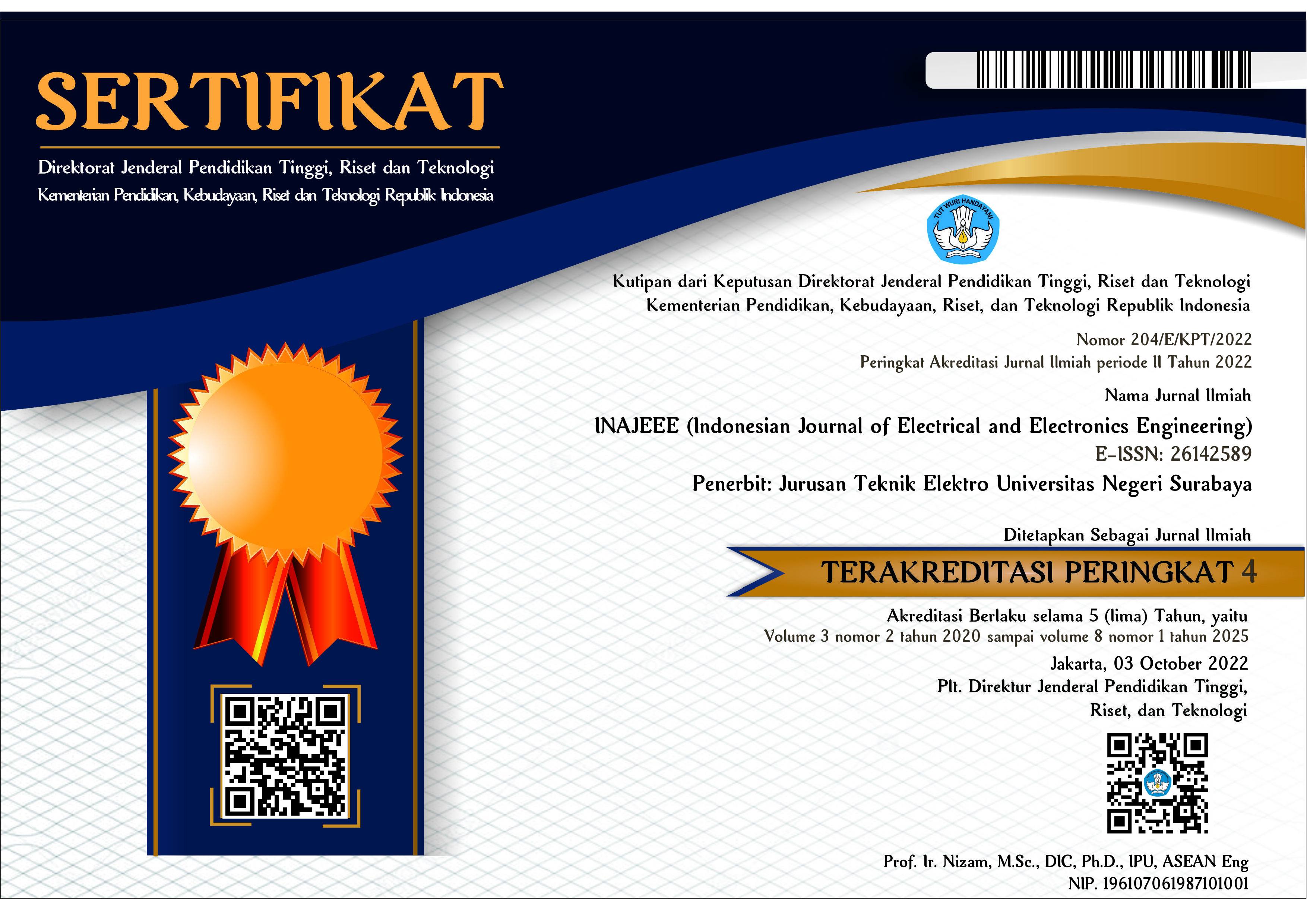Long-Term Prediction of Leakage Current in Lightning Arrester Using Linear Programming Method
DOI:
https://doi.org/10.26740/inajeee.v8n1.p17-24Abstract
Lightning arrester is an essential part of an electrical system in a substation that functions to protect against overvoltages caused by lightning strikes and switching processes. The problem that arises with lightning arresters is the leakage current that flows. Leakage current increases over time, influenced by environmental temperature and the applied voltage. In this research, the researchers predicted the leakage current in lightning arresters for early prevention and to assess the feasibility of the lightning arresters. The method used is linear programming, where the parameter used is the corrective resistive leakage current. Data analysis was performed using the least squares model by formulating the least squares problem as a linear programming problem. After prediction, in some years, the predicted results closely matched the actual data, resulting in very good outcomes. However, there were some years where the predicted data and actual data showed significant differences. The actual data showed significant fluctuations with several peaks and sharp declines. The predicted data showed a more stable and consistent increasing trend from 2024 to 2030. Then, the predicted data and actual data were compared to determine performance accuracy. The result obtained was a Mean Absolute Percentage Error (MAPE) of 21.7%, which falls into the category of sufficient performance for prediction. The results of the leakage current prediction until 2030 for all lightning arresters are still below the maximum limit, except for the Bay Rungkut 2 phase S, which is 300.9 ?A, indicating that replacement is necessary according to the standards in the SKDIR 0520-2.K/DIR/2014 maintenance guidelines for lightning arresters by PT. PLN (Persero).
Downloads
Published
Issue
Section
License
Copyright (c) 2024 INAJEEE (Indonesian Journal of Electrical and Electronics Engineering)

This work is licensed under a Creative Commons Attribution-NoDerivatives 4.0 International License.
 Abstract views: 209
,
Abstract views: 209
, PDF Downloads: 365
PDF Downloads: 365



